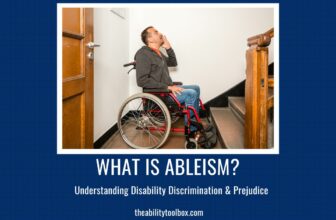Highly Sensitive Persons (HSPs) have unique experiences and sensitivities that can make navigating the world challenging. Often, HSPs find it difficult to manage their emotions, cope with stress, and maintain healthy relationships. In such cases, therapy can be a valuable tool for understanding and addressing the specific needs of HSPs. Dialectical Behavior Therapy (DBT) is an innovative treatment that can help highly sensitive people develop coping skills to thrive in a world that is not built for them.
What Is Dialectical Behavior Therapy (DBT)?
DBT was initially developed by psychologist Marsha M. Linehan to treat individuals with borderline personality disorder. However, its principles and techniques have since been applied to various other mental health conditions, including anxiety, depression, and post-traumatic stress disorder. In addition, Dialectical Behavior Therapy is based on the Biosocial Theory, which suggests that the interaction between biological and environmental factors plays an important role in the development of Borderline Personality Disorder, as well as in some characteristics of Highly Sensitive People, such as being more sensitive to emotional stimuli, experiencing intense emotions more often than others, and having emotions that last longer.
What Is a Highly Sensitive Person (HSP)?
High sensitivity is a personality trait characterized by the tendency to process information more intensely and deeply than the average person. Highly sensitive people tend to be more sensitive to environmental stimuli, emotionally reactive, and prone to feeling overwhelmed. Dialectical behavior therapy can be an effective approach to helping people cope with these traits and develop emotion regulation skills. HSPs can also benefit from DBT due to its emphasis on emotional regulation, mindfulness, and interpersonal effectiveness skills.
How DBT Skills Can Help with High Sensitivity
One of the primary reasons why DBT is considered suitable for HSPs is its focus on emotional regulation. HSPs often experience intense emotional reactions to both internal and external stimuli, and DBT equips them with skills to manage and modulate these emotions effectively.
Regulating Emotions Using the PLEASE Skill
One of the emotional regulation tools used in DBT to reduce vulnerability is the acronym P.L.E.A.S.E which means:
P&L Prevent and treat physical illnesses
E Eating (Food Balance)
A Altering drugs (Avoiding mood-altering substances)
S Sleep (Balanced sleep)
E Exercise (Physical exercises)
As a highly sensitive person also diagnosed with Borderline Personality Disorder, I have experienced the effects of Dialectical Behavior Therapy in practice, and I can say that I have felt the positive effects of this approach, such as self-control, mood regulation, a decrease in emotional instability and improvement in interpersonal relationships.
The PLEASE tool taught me that mind and body are closely linked. The way we eat is directly related to the way our mood acts and reacts and therefore how it affects our decision-making.
I used to consume a lot of sugar to elevate my mood and lower my anxiety. This habit had a rebound effect on my physical health because the more sweets I consumed, the greater my desire to eat another one, thus creating a cycle that only sent my health into a downward spiral.
So, I incorporated functional physical exercises into my daily life, and it has helped me a lot. The consumption of sweets decreased, I started to balance my diet and, with that, my sleep also reaped positive results from all this change.
Mindfulness and the Wise Mind
Mindfulness, a central component of DBT, can be particularly beneficial for HSPs. By cultivating present-moment awareness and nonjudgmental acceptance of their experiences, HSPs can gain greater insight into their internal processes. This practice can help HSPs recognize their emotional triggers, engage in self-reflection, and respond to situations in a more balanced and adaptive manner.
Mindfulness promotes self-compassion, allowing HSPs to navigate their sensitivity with kindness and understanding. This is because, through mindfulness, it is possible to develop what DBT calls the Wise Mind. The wise mind is considered the synthesis of two other states of mind: the emotional mind and the reasonable mind. It represents a balanced and integrated state in which emotions and rational thinking are effectively combined.
The DBT wise mind involves objectively observing and describing your inner experience. This means noticing your thoughts, emotions, and physical sensations without judging them or engaging in a struggle with them. The person seeks to become an impartial observer of their own experience and describe it in neutral and precise words.
Being a highly sensitive person with marked sensory and empathetic capacity, I almost always suffer from having to make decisions with fear of judgment and other people's opinions. However, with a wise mind, I am now able to make decisions by adopting a non-judgmental stance, doing one thing at a time, being effective, and acting in accordance with my principles and my values.
Interpersonal Effectiveness and the Dear Man
Interpersonal effectiveness is another essential aspect of DBT that can greatly benefit HSPs. HSPs often struggle with boundaries, assertiveness, and communication due to their heightened sensitivity to others' emotions and the environment. DBT helps HSPs develop assertiveness skills, effective communication strategies, and boundary-setting techniques. These skills enable HSPs to maintain healthier relationships, express their needs and preferences, and navigate social interactions with increased confidence.
A great Interpersonal Effectiveness tool is the “Dear Man.” Dear Man is an acronym that stands for Describe, Express, Assert, Reinforce, Stay Mindful, Appear Confident, and Negotiate.
In my practice, I used Dear Man to explain to my sister why I wouldn't travel to my hometown to visit her and my nephews. In the past, I would argue with her, start crying, and we would probably get hurt. However, with the help of this tool, I was able to:
D (Describe) why I would not travel.
E (Express) how I was feeling about the situation.
A (Assertiveness) directly told her that although I wasn't with the family in person, we could video call everyone.
R (Reinforce) how important it is that we are united even from a distance.
M (Mindful) stay focused, and be firm in the conversation, noting feelings and thoughts so as not to argue or raise my voice.
A (Appear Confidence) during the conversation, do not “dramatize”.
N (Negotiate) to hear my sister's opinion, and agree on the best strategy for both.
Dialectical Behavior Therapy and Support for Highly Sensitive People
Another noteworthy feature of DBT is its comprehensive and holistic approach. It combines individual therapy, group skills training, phone coaching, and therapist consultation teams to provide ongoing support and guidance. This multi-faceted approach is well-suited for HSPs, as it offers a consistent and structured framework for learning and practicing new skills. The availability of phone coaching and therapist consultation teams also ensures that HSPs have access to immediate assistance when faced with challenging situations.
Building Distress Tolerance Using DBT
I went through a challenging family situation, and I needed the emotional support of telephone coaching. My therapist promptly attended to me and guided me to put into practice one of the Distress Tolerance tools called TIP. The TIP skill is meant to change your body's chemistry quickly to reduce the effects of an overworked emotional mind. It has to do with the acronym:
T Temperature
I Intense Exercise
P Progressive Muscle Relaxation/Paused Breathing
In my case, I was guided to change my body's physiology (after a discussion with my father) by immersing my face and wrists in ice water for 10 seconds. In addition, I breathed in a cadenced way, inhaling 5 seconds in and exhaling 7 seconds out.
I managed to calm down and self-regulate little by little.
Meeting Your Individualized Therapy Needs as an HSP
While DBT offers numerous benefits for HSPs, different therapeutic approaches may be more suitable for certain individuals depending on their specific needs and circumstances. HSPs are a diverse group, and what works for one person may not work for another. Therapy is a deeply personal journey, and HSPS must work with a therapist who understands their unique needs and can provide appropriate support. Ultimately, the best therapy for HSPs will vary from person to person, and the choice should be made collaboratively with a qualified mental health professional.
In conclusion, Dialectical Behavior Therapy (DBT) has shown great promise as an effective therapy for Highly Sensitive Persons (HSPs). Its focus on emotional regulation, mindfulness, and interpersonal effectiveness can help HSPs manage their sensitivity, develop coping skills, and navigate the challenges of daily life. For a person with high sensitivity, DBT can help reduce emotional reactivity and increase emotional resilience.
Have you tried DBT? Does it work for you?
Share your experiences with our supportive mental health community in the comments below.
Daniela Silva is a Brazilian educational writer living with her husband in Goiânia (GO), Brazil. She holds a BA in Pedagogy; an MBA in Personnel Management and a postgraduate certificate in Neuroeducation. Working as an educational writer since 2012, Ms. Silva is a regular contributor to several educational websites, such as 4W, Inspire the Mind, Psychreg, The Old Schoolhouse Magazine, New Heights Educational Group, and Texas HomeSchool Coalition.








Start the discussion at community.theabilitytoolbox.com